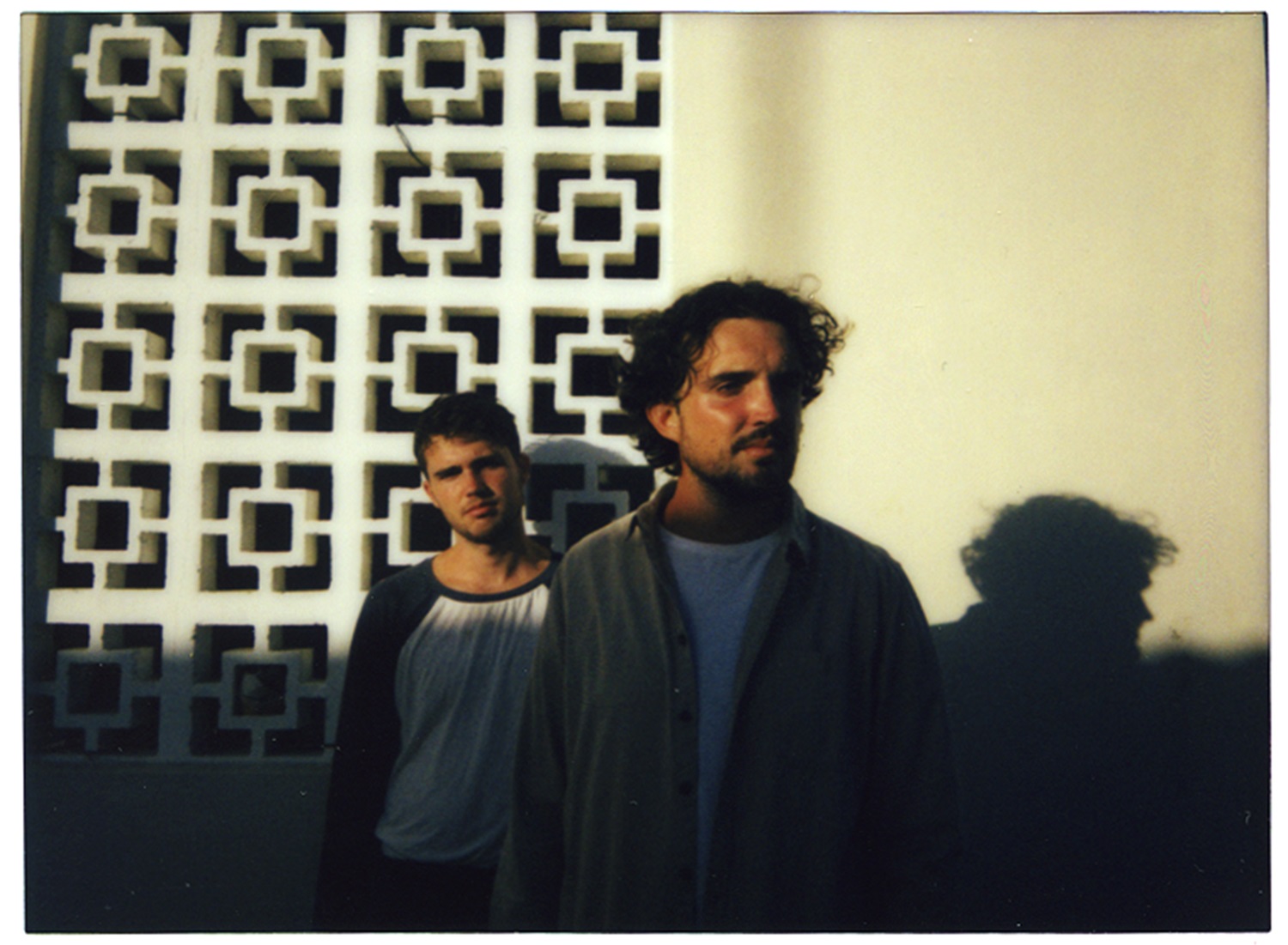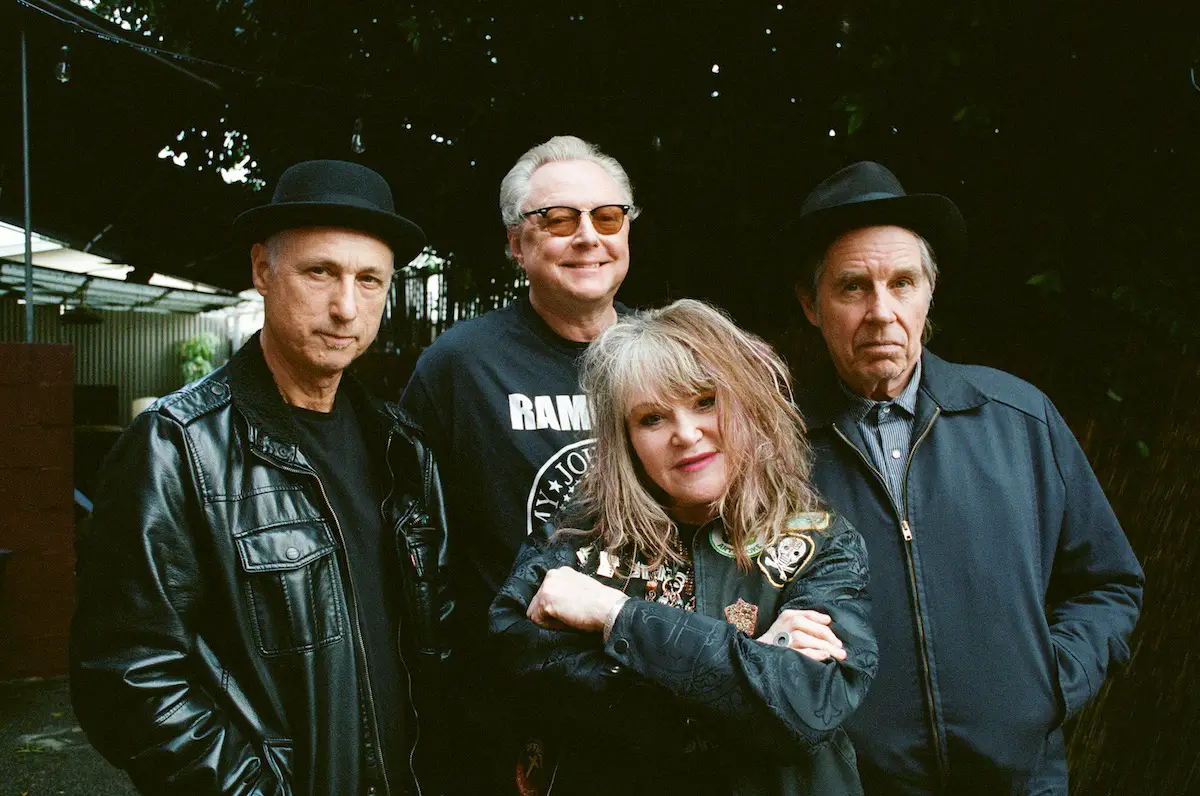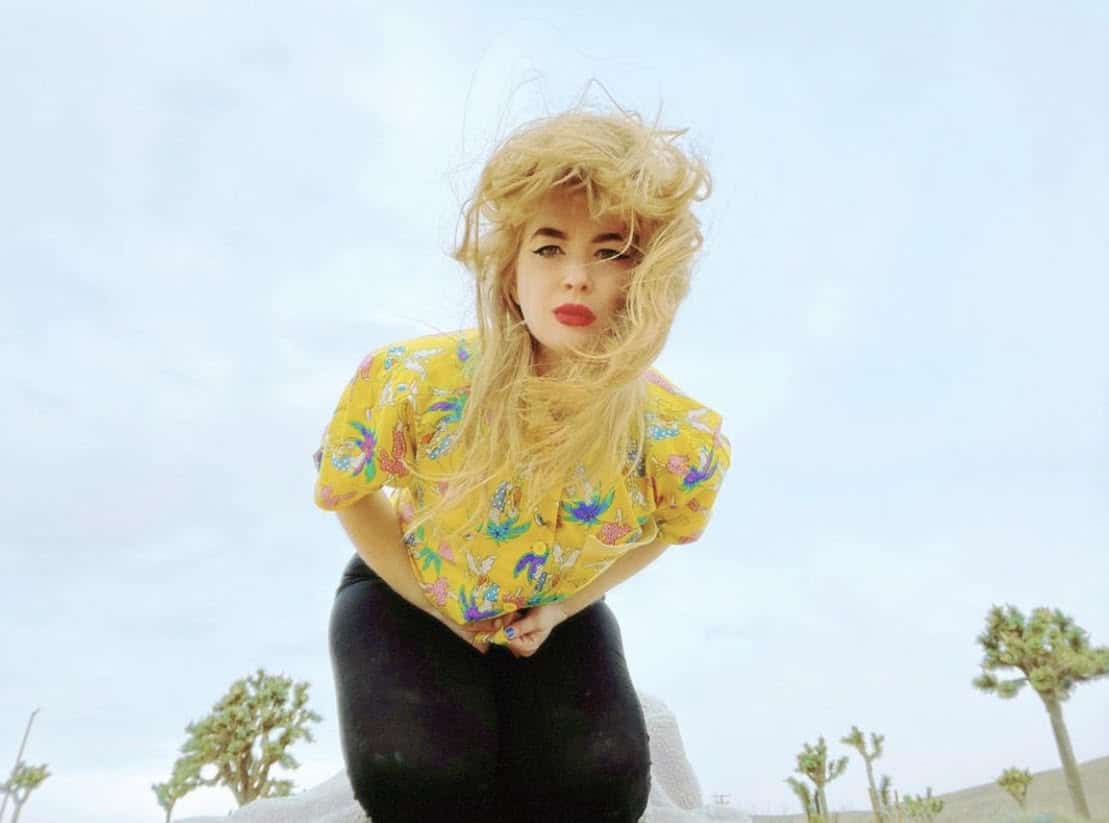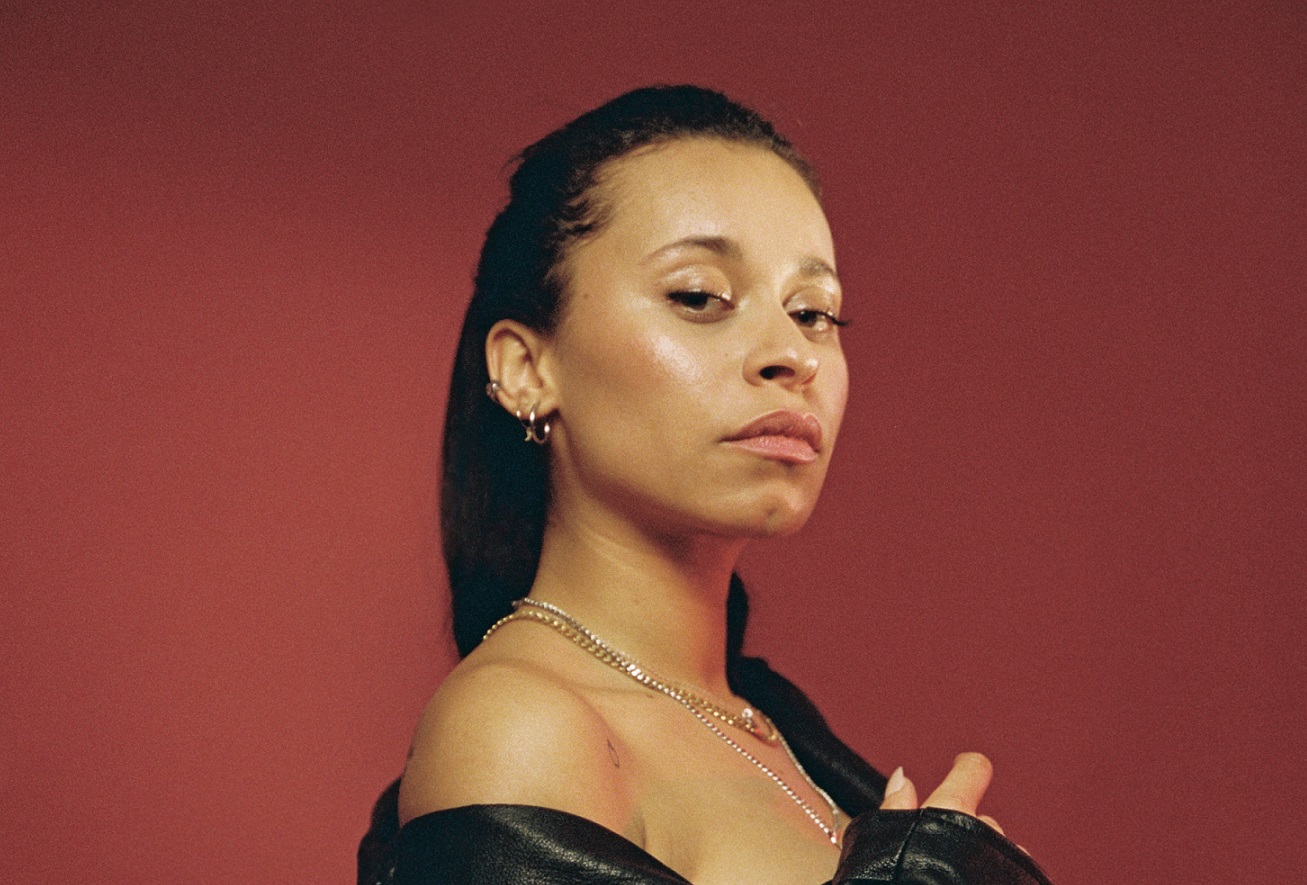British singer/songwriter Billie Marten reflects on what nature means to her, film soundtracks and the creative process for her fourth album, ‘Drop Cherries.’
Stream: ‘Drop Cherries’ – Billie Marten
Blue often for me was melancholic, lack of hope, feeling very small and quiet, like a pebble or something. And now blue is this expansive, ocean-type feeling of confidence and power.
Breathtakingly vulnerable, unapologetically human, and enveloping in comfort, Billie Marten’s fourth album is gentle and quizzical on the human experience.

Following 2021’s Flora Fauna, the Yorkshire-based indie folk artist returned this month with Drop Cherries (April 7 via Fiction Records). Overflowing with tenderness, lush natural imagery, and warm guitar tones, Marten’s fourth LP feels like a tree branch extending to the rest of her discography.
Drop Cherries is a profoundly personal album that features the singer/songwriter’s radically open lyricism, enchanting, rich vocals, and velvety melodies. The album explores everything from self-discovery to growth and selfless love.
The 23-year-old concludes her album with the title track “Drop Cherries,” singing:
To bathe in perfect colour,
Paint me in the red
Pages curling in the wet
There are books I’ve never read
Many weathers to collect
And spill over the carpet
Blood as pure as this
Fastened with a kiss
I drop cherries at your door
When you ask for more
I don’t know what I’m here for
I drop cherries at your door
When you ask for more
Now I know what I’m here for
Marten fittingly concludes an album that grapples with self-discovery, mental journeys, and self-perception with the lyric, “Now I know what I am here for.” Drop Cherries perfectly encapsulates the twenty-something struggle with oneself, taking listeners through an intimate journey as Marten explores her mindset toward herself and others.
Atwood Magazine caught up with Billie Marten to discuss self-discovery, human connection, and the acoustic sound.
— —
:: stream/purchase Drop Cherries here ::
Listen: “Drop Cherries” – Billie Marten
A CONVERSATION WITH BILLIE MARTEN

Atwood Magazine: Billie, it's so lovely to have you here. How are you doing today?
Billie Marten: I’m feeling very good. I’m enjoying this time post-album where everything’s incredibly productive. Each day has its purpose, and feeling good.
That’s a great place to be! Your fourth album releases this week! It’s a stellar record! How are you feeling, knowing that it will be out in the world for people to consume very soon.
Billie Marten: I guess I’ve done this three times now. But it doesn’t really seem to make a difference. I guess. I just want people to pick it up. If they like it, they like it, if they don’t, that’s okay. Because it’s kind of for me anyway, this one.
What does that mean?
Billie Marten: Well as in, it very much serves a personal purpose for me. So, I’m pinning a lot less on other people’s perceptions of this album, which is a healthier way to look at things I guess.
You’ve spoken about the concept of writing for yourself versus writing for others. How was that journey moving towards that goal?
Billie Marten: Well, I think in the beginning because I started young, a lot of people tended to grab onto me quite quickly, and I had to hold their hand in the hopes that they would achieve something from my career. And I didn’t even know what career was at the time, you know? There was far too much pressure on longevity, when I had only lived 10% of my life. Now, I do this because it’s a sheer joy to make music and I am a fan of music before anything else. And as long as I can carry on doing that, then I’ll be happy. But I suppose I’m trying much more to play less to the gallery.

I’m pinning a lot less on other people’s perceptions of this album, which is a healthier way to look at things I guess.
Whilst you may be playing less to the gallery, is there any particular song that you hope to receive a response from?
Billie Marten: It’s a pretty selfish album, I guess. [Drop Cherries] explores a lot of themes of, there’s no way to say this without sounding overly saccharine or like it’s been said before, because it has. But just trusting yourself and trusting the process, and I hope that people can empathize with that in whatever creative endeavor that they’re doing. It would be great to hear stories of people that have done a similar thing to me, and I suppose we can bolster each other up in that way. But mainly kind of getting over yourself, I would say the album explores that, putting all your time and energy into someone else and something else and finding joy and a new muse.
Two of the songs, “Tongue” and “Bend To Him,” spoke to this muse and described love in this very selfless way, versus in the past with songs like “Blood is Blue,” which described love far more painfully. Was there a certain catalyst that brought you to that mindset?
Billie Marten: It’s such a joy. I’m very bored of myself at this point, we’re talking 11 years of talking about me. And I’m a remarkably unremarkable person [laughs] and I find much more joy in talking about something else, whether it be nature or literature, or love or whatever. And I think I chose this catalyst because I knew it could keep providing me with the fruits I needed and then an album was formed quite easily.

Speaking of that natural imagery, you've been utilizing nature in your lyricism for years. Is there something about nature that calls to you?
Billie Marten: Yeah, I think it’s a huge part of my identity, I’m really enjoying finding the remarkability of such simple things. And for me, I know that the things I need to survive and live healthily are nature, water, love, food, sleep, I’m a big sleeper. And just leaning into that and going, “you know, I need to live a relatively domestic life because I don’t get to spend most of the year at home.” So it’s a real kind of gift and a blessing that I can find enjoyment out of things that are never going to go away, hopefully. There’s so much to say about [nature] And its vocabulary and its semantic field is supremely creative for me. It’s inspiring.
It definitely is and it's very vast as well. I found when I was listening through your last album, I felt like, “Wow, this is all the natural imagery that could possibly be.” But then I listened to tracks like “Willow” and there was so much more!
Billie Marten: Well, that’s the thing! There’s so much in there, it’s like an endless bag of treats. And I am not looking forward to the day where nature doesn’t serve me. Let’s hope that it never happens. But I think it’s a great writing tool for anyone that is struggling to find that specific metaphor, a way to kind of blanket their feelings. I think, just look at any part of nature and it will give you the answer.
Folded in sheets
Hearing me speak
Waiting for time to welcome its sleep
And I look out the window
Praying tomorrow will wake up
Building a wall
Tearing it down
Sending a message that I am yours now
Two weepin’ willows throwing an arm to the other
Hidden in your shoulder curve
Waitin’ for your chest to burst
No one said that it would hurt
Knowin’ you, oh, to know you
– “Willow,” Billie Marten
You began this album with the song “New Idea,” which is incredibly stripped back, featuring no lyrics, only vocalization and a guitar. Was there a certain inspiration behind that?
Billie Marten: I felt that a lot of music I put out was very word heavy and lyrically focused. And perhaps melody and instrumentation formed the secondary idea. And in this one, I very much felt, with the co-producing and all of that stuff. I roll my eyes there, because I’ve always co-produced but now you have the title so you’re serious and everything. But I always wanted to start an album with an instrumental song. And it was just a very floaty, light, demo that I made in the studio around the time that I was putting all the demos together. And I tried to find words, and they never came and I think there’s a reason for that. So it sort of is chapter one, this is what the album sounds like to me, without listening to the songs. And I think it’s that moment of putting the needle on the thing, and then you’re in a world.

That's a really beautiful way to put it. In terms of getting the credit towards co-producing, was there a certain surrealism to finally seeing your name under that title?
Billie Marten: Weirdly, I look at it and I’m kind of like, “Is that what I did?” Yes. Yes? That inability to recognize what you can do is a big problem, I think, a lot of people. It was just a conversation that I never had the guts to pick up with previously. I decided to shoot for it this time. Because I’ve always been in that studio, I’ve always been making decisions. I found that people weren’t talking to me about the album itself. They were talking to me about what it was like being at school. And did I find the lyrics or the melody first, and who taught me guitar.
No matter how far you get down the musical line, I was still being asked questions about the genesis, which is important, and I can talk about that, but it’s more so, “How come a load of dudes are getting asked what pedals they put on here? Or which instrument that was? And I’ve never been asked that.” There was a certain assumption that I just sat there with a mic in front of me, playing my little guitar, playing my little songs, and not really knowing much else about production. I’m not saying I know everything, I certainly don’t, but I can do it in my own way. And that’s kind of what this album is.
I've spoken to many younger women in the industry and they've fought with the same issue of being trivialized. I was looking through one of your playlist on Spotify titled “things you should listen to,” and it features some Fiona Apple who has spoken on the fact that nobody thought she could write her lyrics because she was a young woman. Is there something you’d say to your younger self who was being underestimated?
Billie Marten: I think, even as you say that, I feel kind of like this thing is very physical. It’s like, “Oh, god, it’s that feeling again.” I don’t know how to just kind of surmise that; I don’t know if it’s a female lead thing or a people lead thing, but I think we’re definitely coming into the age of personal freedom, you know, political freedom, social freedom, cultural freedom. There is no excuse now to kind of ignore those impulses. So if there’s anything I would say to my younger self, or anybody who’s trying to find a voice within society, it really is just: Lean into things that you know, that you can do.
That’s not a great phrase, but if you have even the tiniest inkling of wanting to do something, please do it and try as hard as possible to take other opinions in, but don’t take them in as the final answer. That forms 20% of your finished product as important to get market research. But you know the answer, and you know why you wanted to sit down with that pen and paper or why you wanted to make that pitch or take that photo. You know. You may not be able to articulate it, but as long as you articulate it in that creative flow, then that’s authentically you.
That was convoluted.

I think we’re definitely coming into the age of personal freedom – political freedom, social freedom, cultural freedom. There is no excuse now to ignore those impulses, so if there’s anything I would say to my younger self, or anybody who’s trying to find a voice within society, it really is just: Lean into things that you know, that you can do.
No not at all! I think it’s perfect. In terms of imagery you’ve always had a very warmed tones aesthetic, your last three album covers feature warm, golden art but Drop Cherries features a bright blue. What inspired that change?
Billie Marten: I was harking back to Writing of Blues and Yellows, which is the first album, and I’d just done a yellow album. And this one was blues and reds. I think it’s important to repaint a color. Because blue often for me was melancholic, was lack of hope, was feeling very small and quiet, like a pebble or something. And now blue is this expansive, ocean-type feeling of confidence and power.
If we think of the things that are blue they are the largest things: The sky, the sea, blue whales, you know, the big things. It was important to me to establish that notion within myself. Of being able to represent something without going back on it, without apologizing for it and excusing it, because it’s not perfect, which it isn’t. [On the last album cover] a thing we did where I was covered in mud which was kind of a slight “fuck you” to labels always wanting my face on everything. And I realize I’ve then contradicted myself by putting my face right on the cover. But it’s a pure album; it’s unadulterated, and I needed a very simple image to describe that.
I think that's beautiful and speaks to your mindset from the previous album to this one. I watched an interview that you did where you spoke about “On Being Blue” by William Gass and how it explores the historical context of that color. Did that come to mind when you were putting together this album cover?
Billie Marten: It didn’t, but you’re so right – that’s probably that. And then also Maggie Nelson’s “Bluets” is great. I wasn’t really reading anything specific at the time, it was really music heavy and before I think I’ve relied on other art forms to kind of get inspired but this one was immediate.
You had spoken about the experimentation with sound that you went through with Flora Fauna, especially in tracks like “Liquid Love” utilizing more electronic sounds. But you’ve returned to this more acoustic sound. What brought you back there?
Billie Marten: Oh, I just felt it coming. I felt really frustrated with myself for trying to deviate from what I knew I wanted to do. Don’t get me wrong, I love making that album, it was fun and it was a surprise to me as to what that was going to end up being. But I didn’t find any joy playing it live, because I felt that I had to compete with a lot of noise. There wasn’t really space for vocals unless they were heavily compressed or recorded a certain way. And I really wanted to make a live album and I had wanted to do that for years, but money was an issue or people were an issue. But this one had people following me and me leading, instead of me trying to chase.
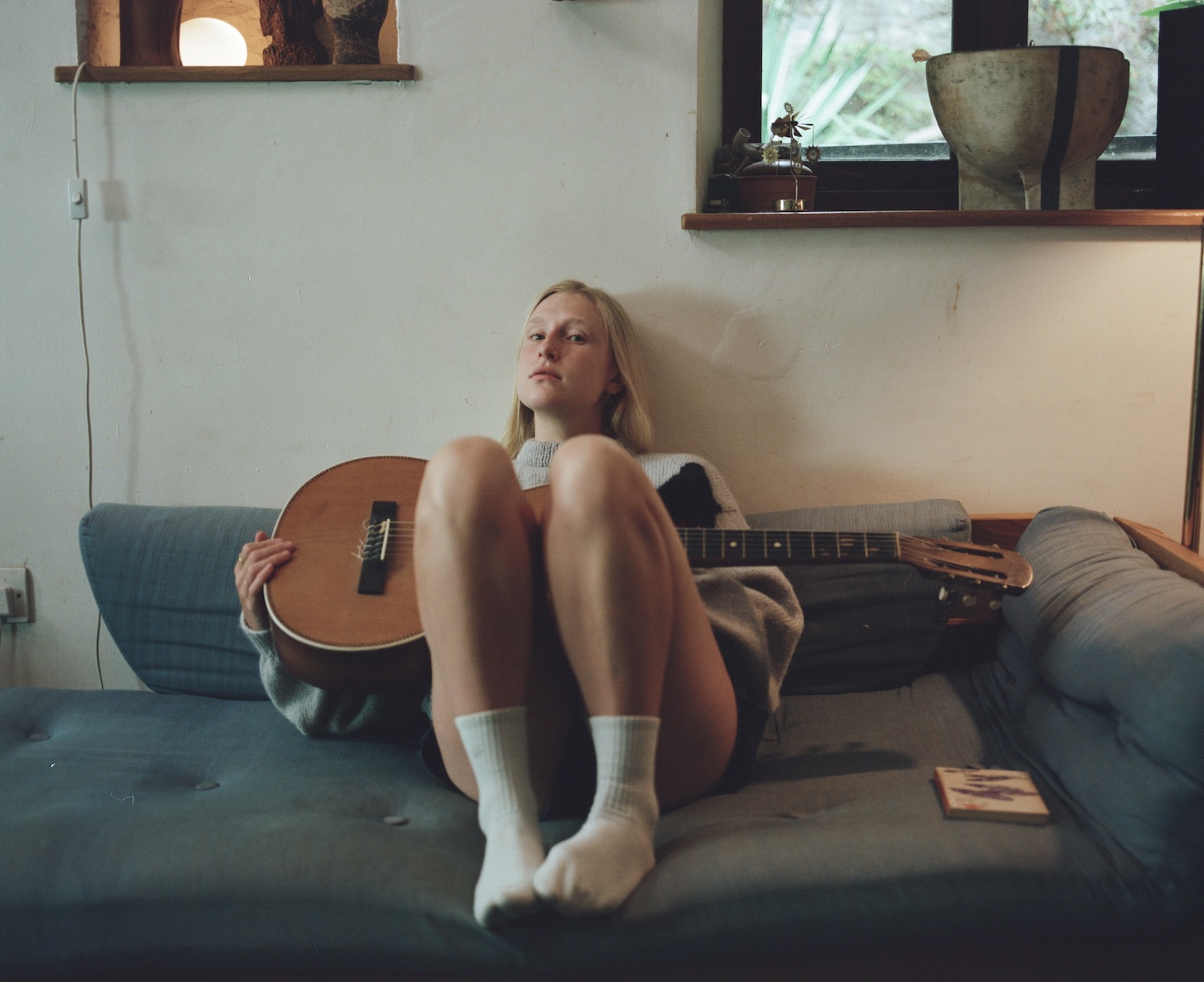
Speaking of your recording process, you mentioned you did it all primarily on tapes and in as little takes as possible. Was that a big shift in your creative process?
Billie Marten: No, I think I’ve always wanted to do it that way, I’ve always felt that if I didn’t get something quickly then it wasn’t meant to be. I’ve been surrounded by people that are more in tune with modern music so don’t really have a problem with authenticity. [laughs] I wanted to prove a point to myself that there’s so much more power in a true live performance. You just need the right mics and you can spend hours setting that up! Which we did. We went through all the mics in the studio and figured out [which mic] for which song and where the drums were in the room made a huge difference in how we were playing together. Sometimes it was in the round with three mics, three guitars. Sometimes I was in my separate room, but looking directly at the drummer, Casper, so we had that line of communication and [there was] such power I felt in getting it wrong. It was the joy of making something so completely imperfect.
Is there a moment of imperfection on Drop Cherries that stands out to you?
Billie Marten: There’s always one of those in every album. There’s a constant argument with Dom [Monks] because it’d be like “Please let me do that again. I can just do that again right now. No problems. Let’s do it.” And he’ll go, “No, you’re done, this is done.” So there were a lot of those conversations, but for a specific moment maybe “Nothing But Mine” vocals.
Really! That's such an interesting one I feel the vocals carry the song.
Billie Marten: [laughs] Great! Well, that’s obviously Dom’s point. It’s something that you have to shed because I can never realize what people want to listen to. And I can’t even hear my own voice properly, because it’s coming through my own skull and it sounds completely different. I think I found my tone to be quite harsh and quite pitchy. And there’s a song called “Willow” and I found that in the chorus, where I say, “knowing you” quite hard to attack when we were recording. I’ve since been playing that song live over and over again. And now I’m like, “Oh, now I know how to record it.” So there’s bits that I maybe would have changed in an ideal world but not worth it as it really.
I wanted to prove a point to myself that there’s so much more power in a true live performance… It was the joy of making something so completely imperfect.
The album shaped up regardless. I wanted to talk about a statement you wrote, “When I’m trying to write, the creative door is closed most of the time. When it briefly opens, I know I’ve stumbled across moments of true emotion and insight; they give no warning and are often unpredictable.” What was a notable unpredictable moment of openness you experienced whilst writing this album?
Billie Marten: I think there was more of a period from last summer when all the songs were nearly there. And I definitely had a list of albums. LP four or whatever. But it still seems incredibly sporadic, last minute, unconsidered. Doesn’t matter how thick I was in it at the time. I think we look back on something in an inaccurate way, a lot of the time. I’m marking this as a really easy, slip, dip and dive in the studio and out, whatever. But it wasn’t that at all, it was months and months. In fact, years of trying to write and then realizing that the door will open whenever it wants to and I have no control over that.
I think that speaks to the candor that you show across in your lyricism as well. Moving onto the title itself, you wrote, “Imagine stamping blood-red cherries onto a clean, cream carpet and tell me that’s not how love feels.” Can you elaborate on the titles meaning a little more?
Billie Marten: Now that I try to explain it to people, it’s pretty random unless you were in my brain talking to the person at the time. But it was a friend that I was actually going to make the album with and we never ended up doing it. But I love talking about other people and finding out what they’re about. Because quite often with life as a musician, it’s one sided. People want something from you so they’ll ask about you or they want to hear about your process and want to hear about your life. And it doesn’t give back to me as much as it does when I’m finding out about other people. So he went into this immense love story, something that was completely cinematic and I knew that I wanted to make a film about it one day. So this is my first reminder to myself that I’m going to write something to do with this feeling.
And I was looking for a symbol of love that hadn’t been done before, too, which is really hard. And you know, cherries aren’t even red. They’re like dark purple. And love isn’t red at all; it’s much deeper than that. It’s almost a maroon or a deep blue. For some reason that’s just how it comes across in my mind. I just loved [this story] because it was this guy giving everything he possibly could to his partner. And instantly I was like, “That’s the title. Can I take it?” And he said yes. And then he wrote me a long form piece about the relationship in an email. But I like how elusive it is and I like that people can take their own interpretation from it. And to me, it just exactly sounds like how the album feels.

That's gorgeous, the fact you were able to get so much from someone else's love, that speaks so much to human connection. Do you still intend to make a film surrounding this concept?
Billie Marten: One day, I’d love to. I really want to get into crossing that bridge between music and film, because it’s how I find most of my music. It’s how I found most of my identity growing up. And I feel like there’s perhaps a gap that we’re missing in film culture that has the exact perfect soundtrack. You know, like another “Good Will Hunting” with Elliott Smith, or another… hmm what’s another film with a great soundtrack. I mean, if we’re really going back, “Love Actually” has a great soundtrack. All those songs don’t necessarily connect. Talking about the music supervisor, I actually know him, Nick Angel, he really thought about that film. He really thought about what was current and also harking back to your older music. And one day I would love to just somehow combine film and music, not even my own. I’d much rather be a music supervisor and, and talk about other people’s music, but we’ll see.
Other than “Goodwill Hunting” and “Love Actually”-
Billie Marten: [laughs] So strange!
I think that's such an interesting combination, but generally soundtracks are so profound. If you could create a soundtrack or remake one for a film what would that consist of to you?
Billie Marten: Oh, God! This could take days to reply to you with. If I could really do a music soundtrack. Okay, what’s something that has just been ruined recently? Well a subject in my house has been “what’s wrong with modern musicals?” because the musicals have been great, but the songs have been so shit. I went to see the Guillermo del Toro exhibition in New York the other day, which was great, because I thought the animation was superb. But the reason I didn’t love that film was because they had Ewan McGregor trying to sing as a little cricket. And he did some terrible songs. So if I could redo that, that’d be great. Because Pinocchio, there’s so much to say there. But one of my favorite films is Fantastic Mr. Fox. He’s a prime example of someone that clearly loves music, we’ll put The Kinks and
Nico into a modern tale about animated foxes. That’s great! I think, not to answer your question, but I love that soundtrack so much. I often put it on at dinner, and people will say, “What the hell is this?” But I think it’s unique and crazily good. Yeah.
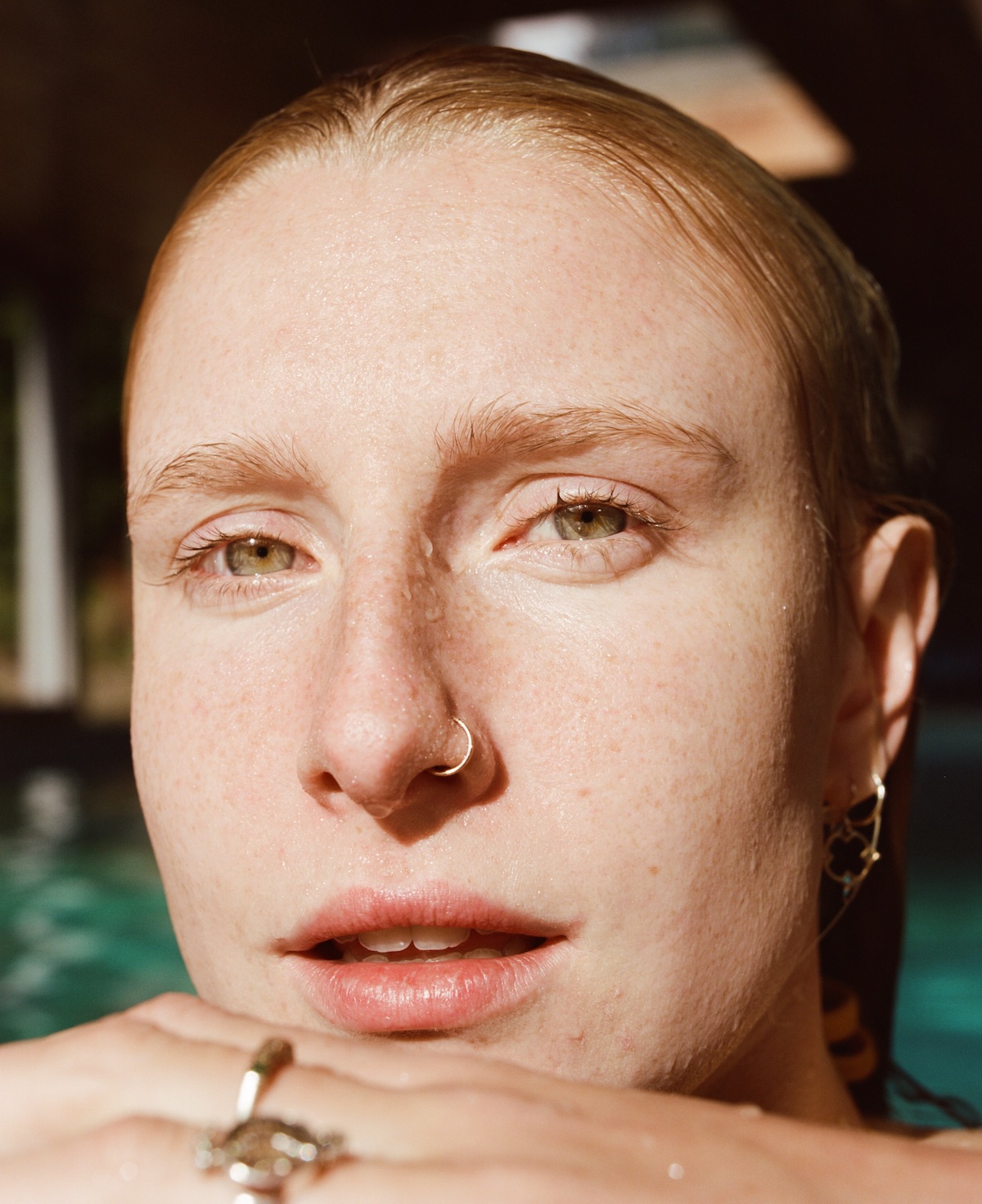
“Mr. Fox in the Fields” is such a phenomenal song!
Billie Marten: *Sings the tune of Mr. Fox in the Fields* ugh it’s great! That’s what my brain does when I’m happy.
I wanted to talk about the conclusion of Drop Cherries. The final line of the album is, “Now I know what I'm here for.” That's so profound to end on. Was that a cognizant decision or just the way that the song shaped up?
Billie Marten: It was. I started the album with, “Here as I am.” And I’m getting to grips with myself now, understanding more of what I represent and what my worldviews are, and becoming more of a human. And then at the end, the lyrics are also, “I don’t know what I’m here for.” And I pinpoint the moment of realization for me was when this relationship started opening up my eyes to the world again. I felt like my view had become quite cynical, quite dark and getting entrapped within the industry and not filling myself with good fuel.
I wanted to just represent that stark thing of “I don’t know what I’m here for.” And then, “Oh, no. This is my purpose.” And this is where I want to leave the album. And we’ll pin in it there. It is not final, and I won’t feel like this forever. And a lot of the album discusses that as well – kind of the ephemerality of all of these feelings. As good as they are, they’re not permanent. But as good as the bad feelings are, they’re not permanent. So it’s like flipping the old sadness on its head and looking at something from the belly up.
— —
:: stream/purchase Drop Cherries here ::
— — — —

Connect to Billie Marten on
Facebook, Twitter, Instagram
Discover new music on Atwood Magazine
© Katie Silvester
:: Stream Billie Marten ::


 © Katie Silvester
© Katie Silvester